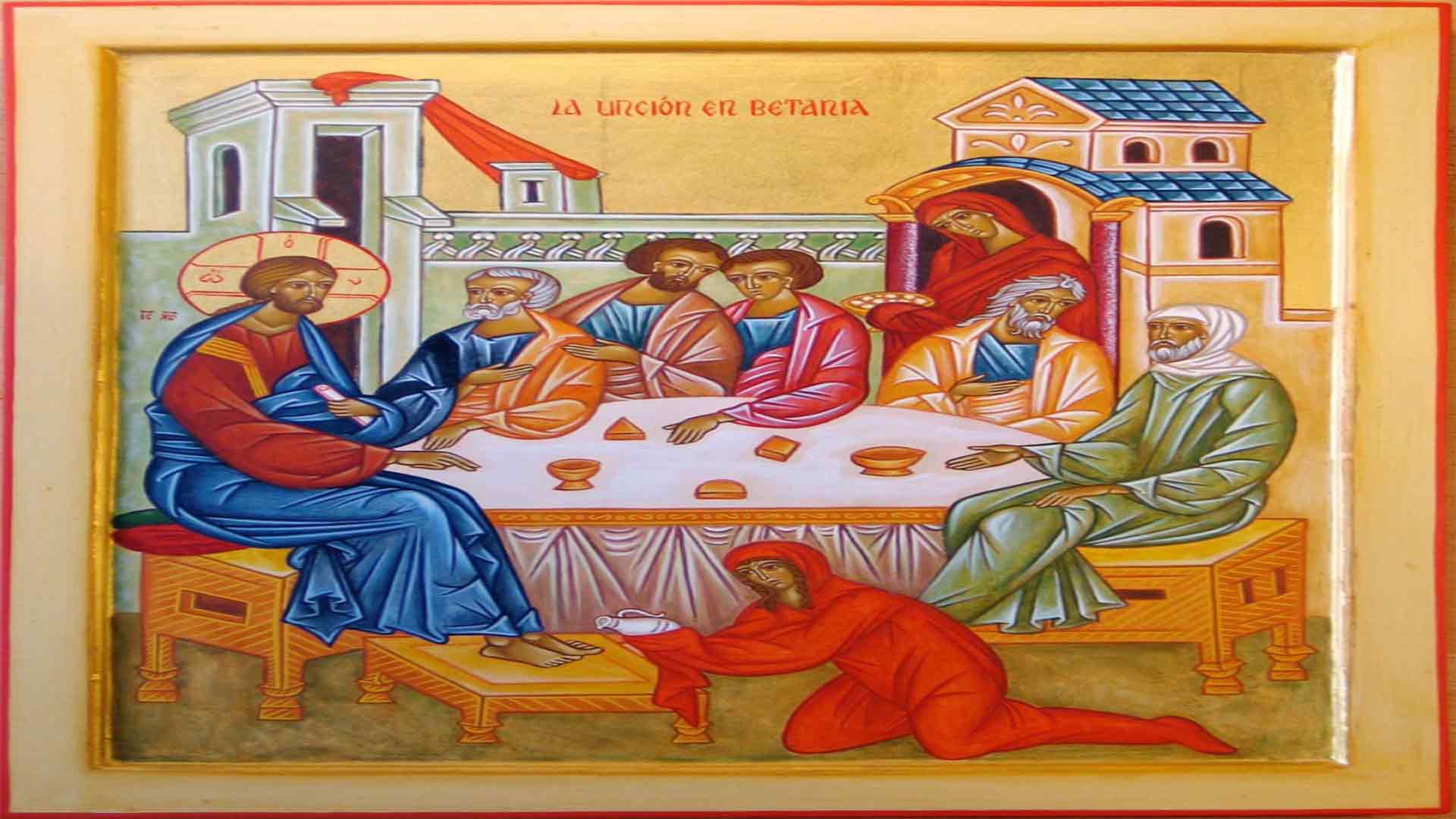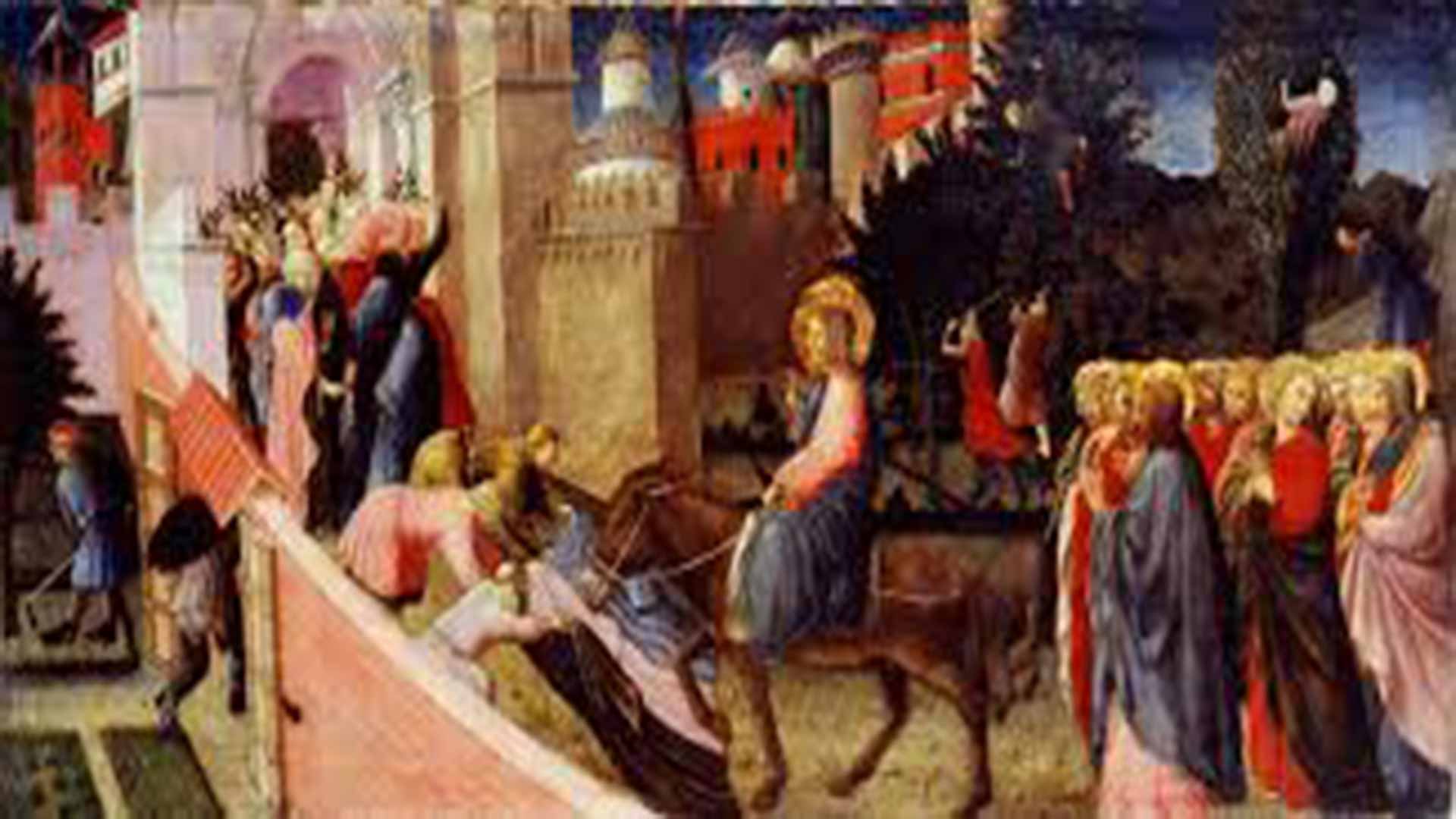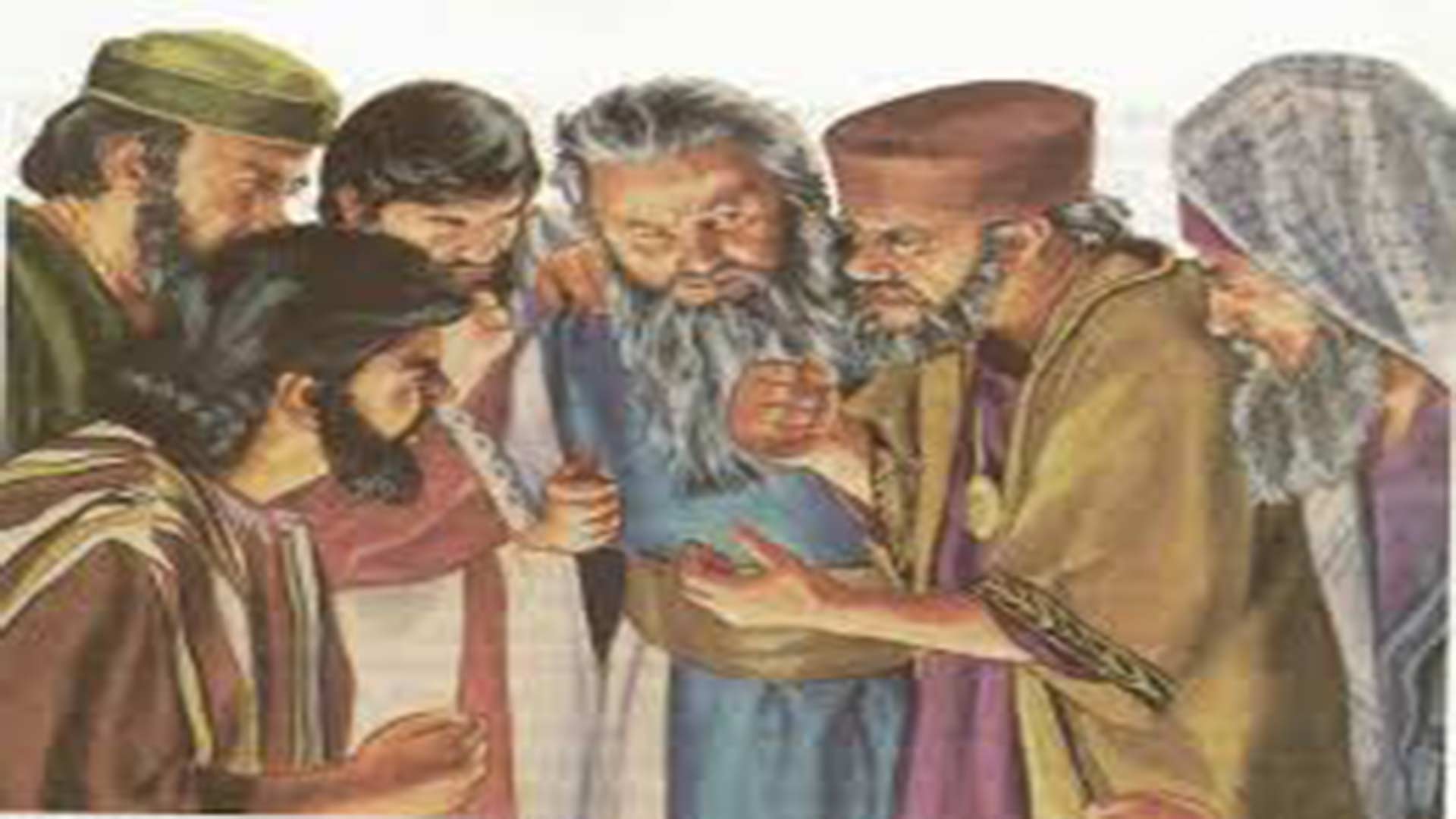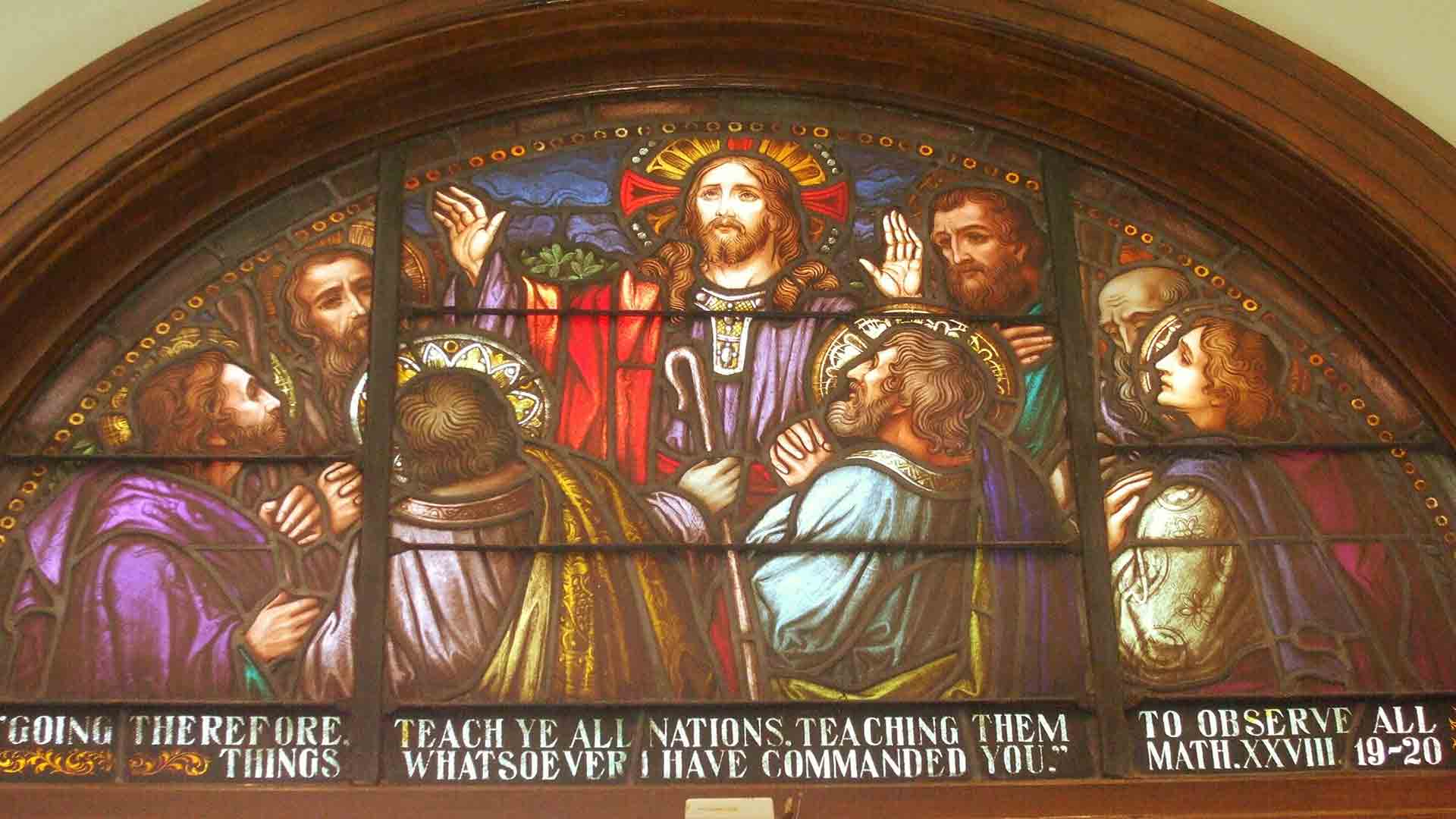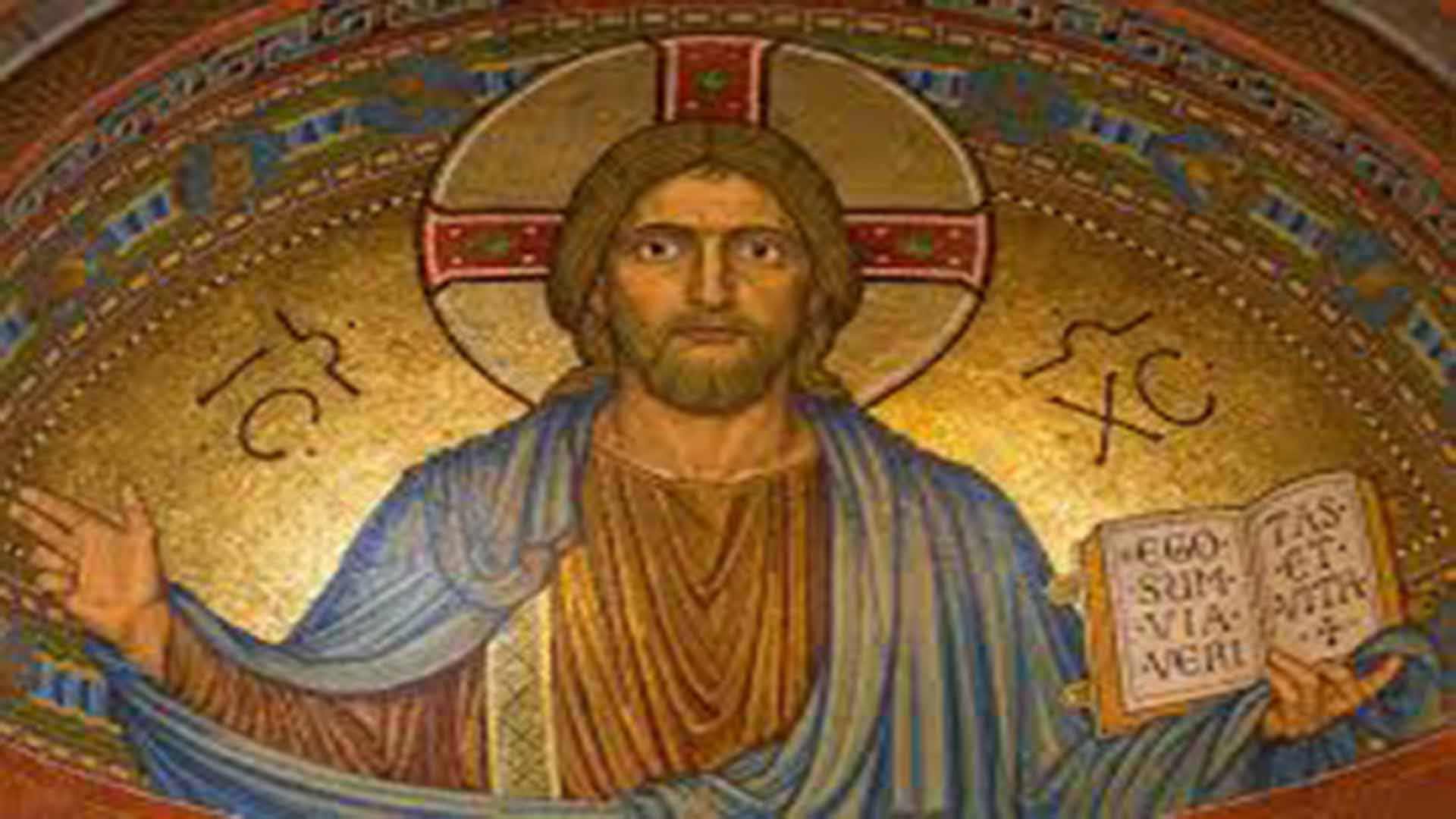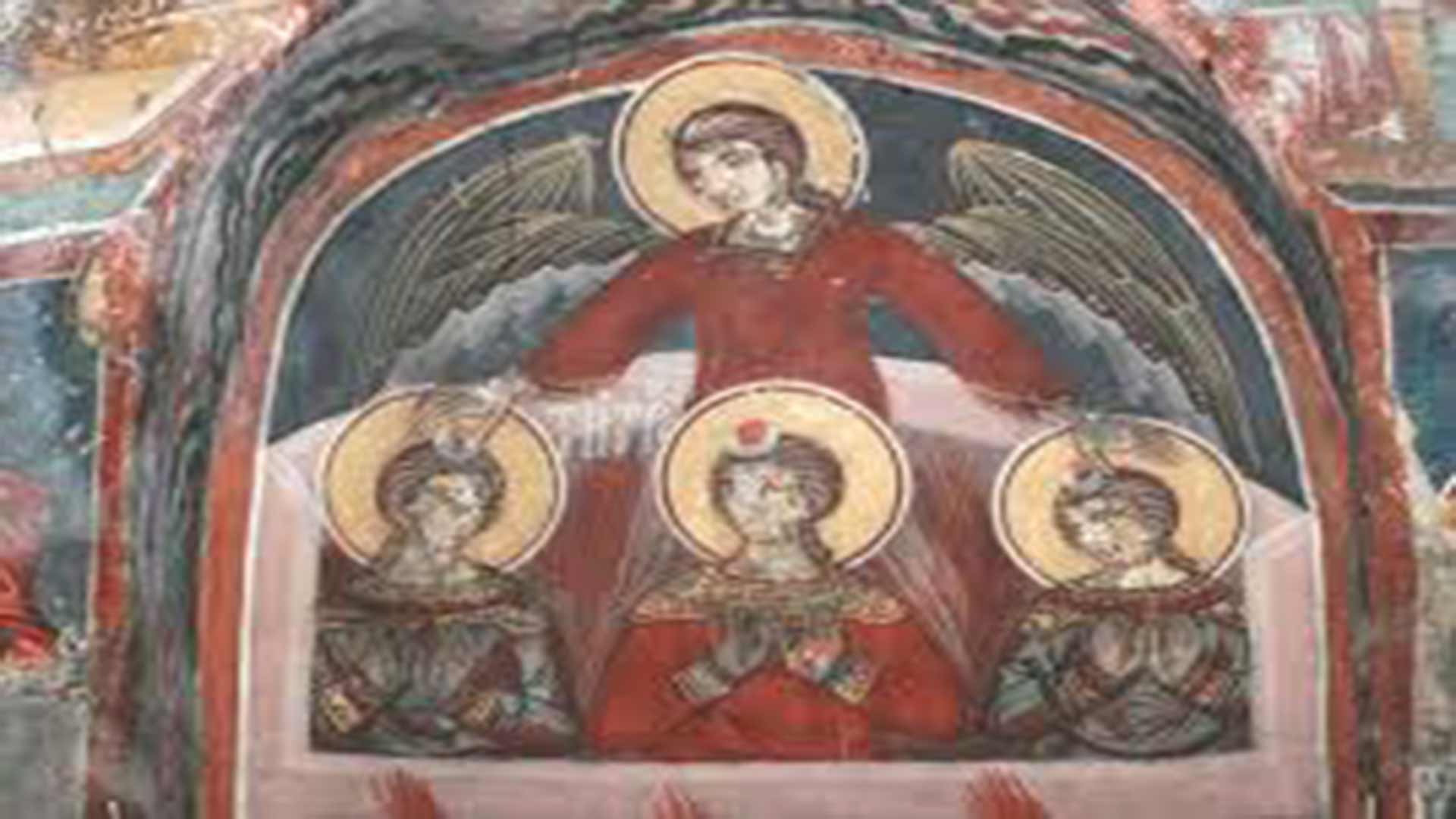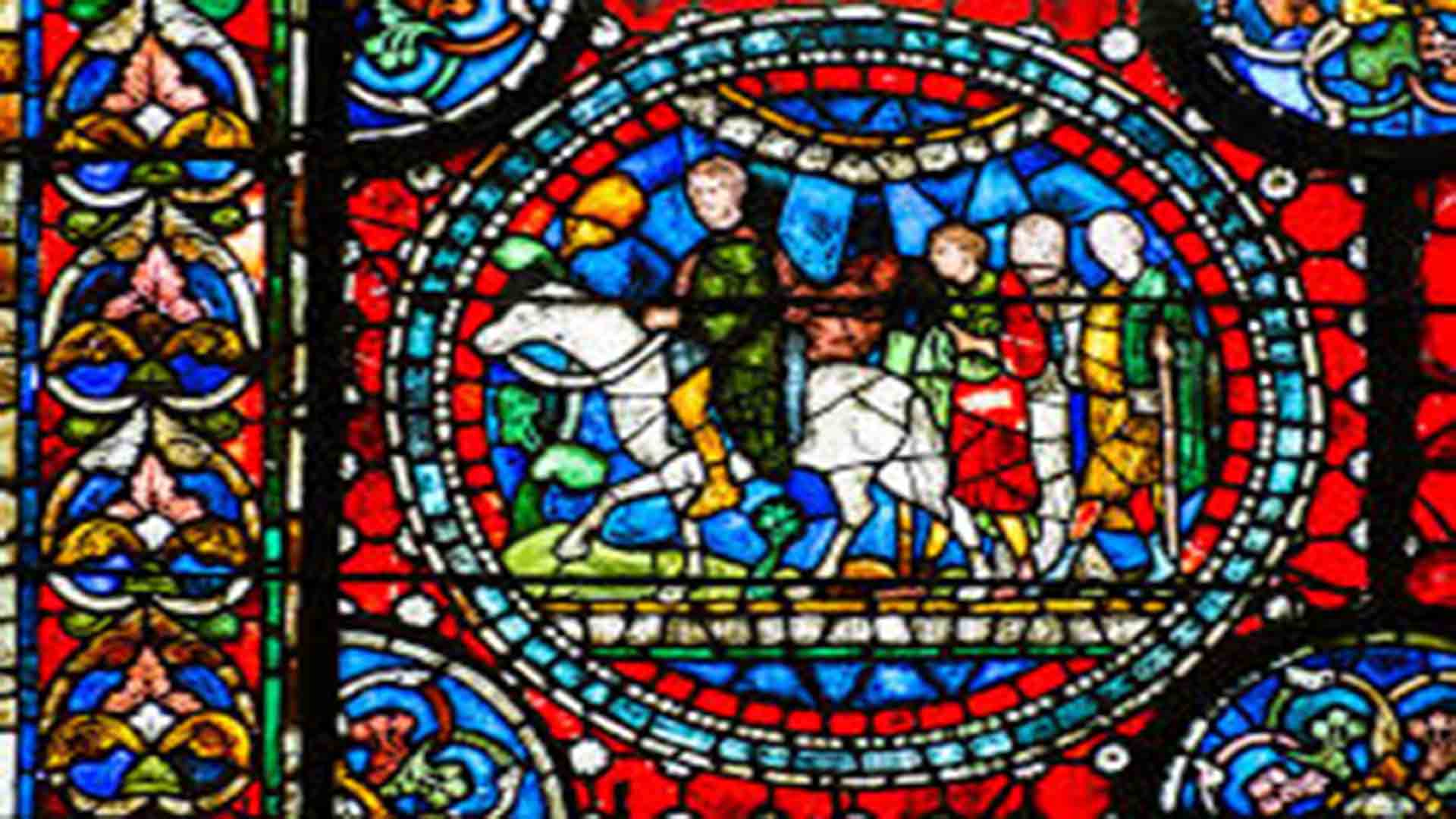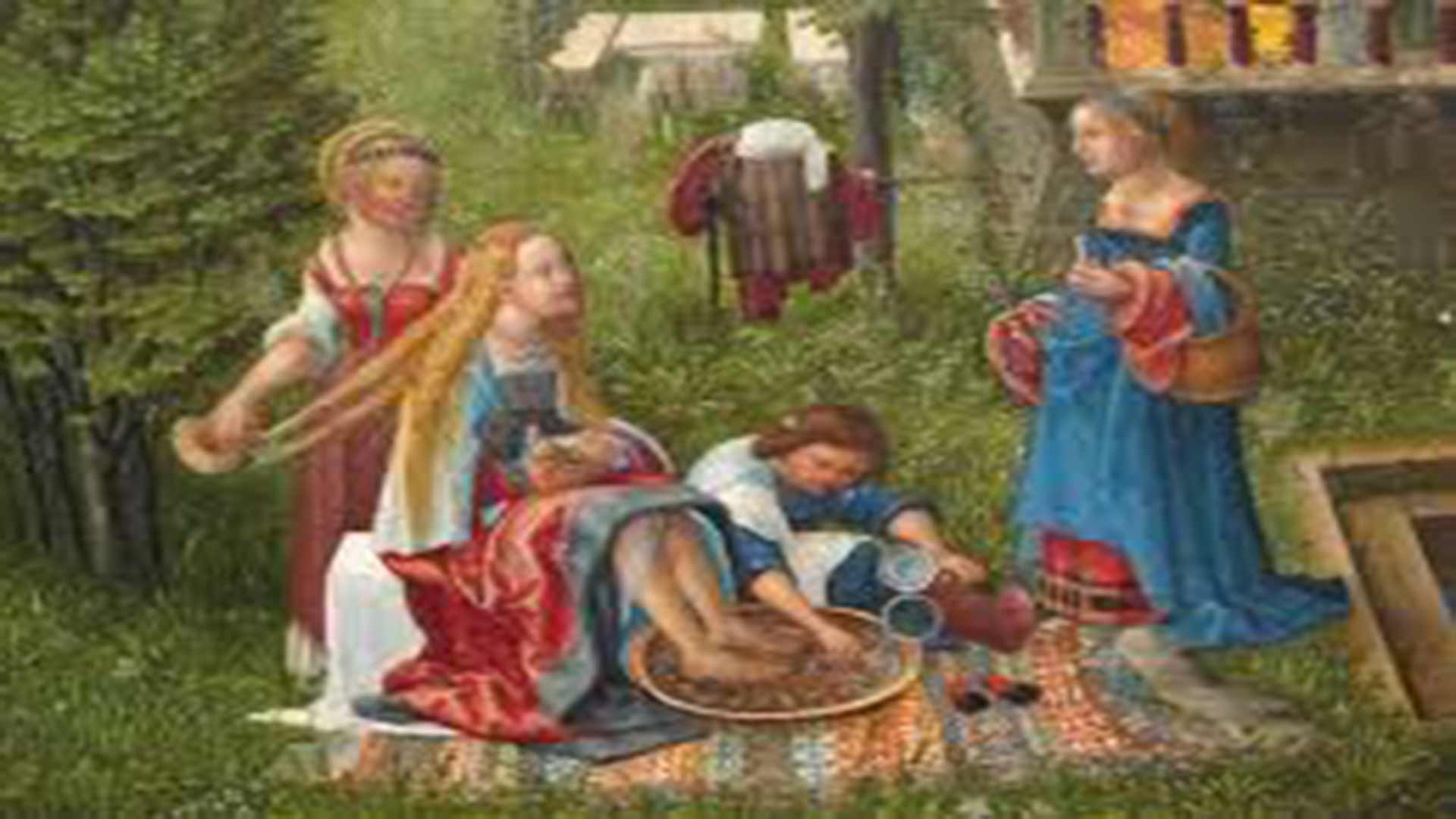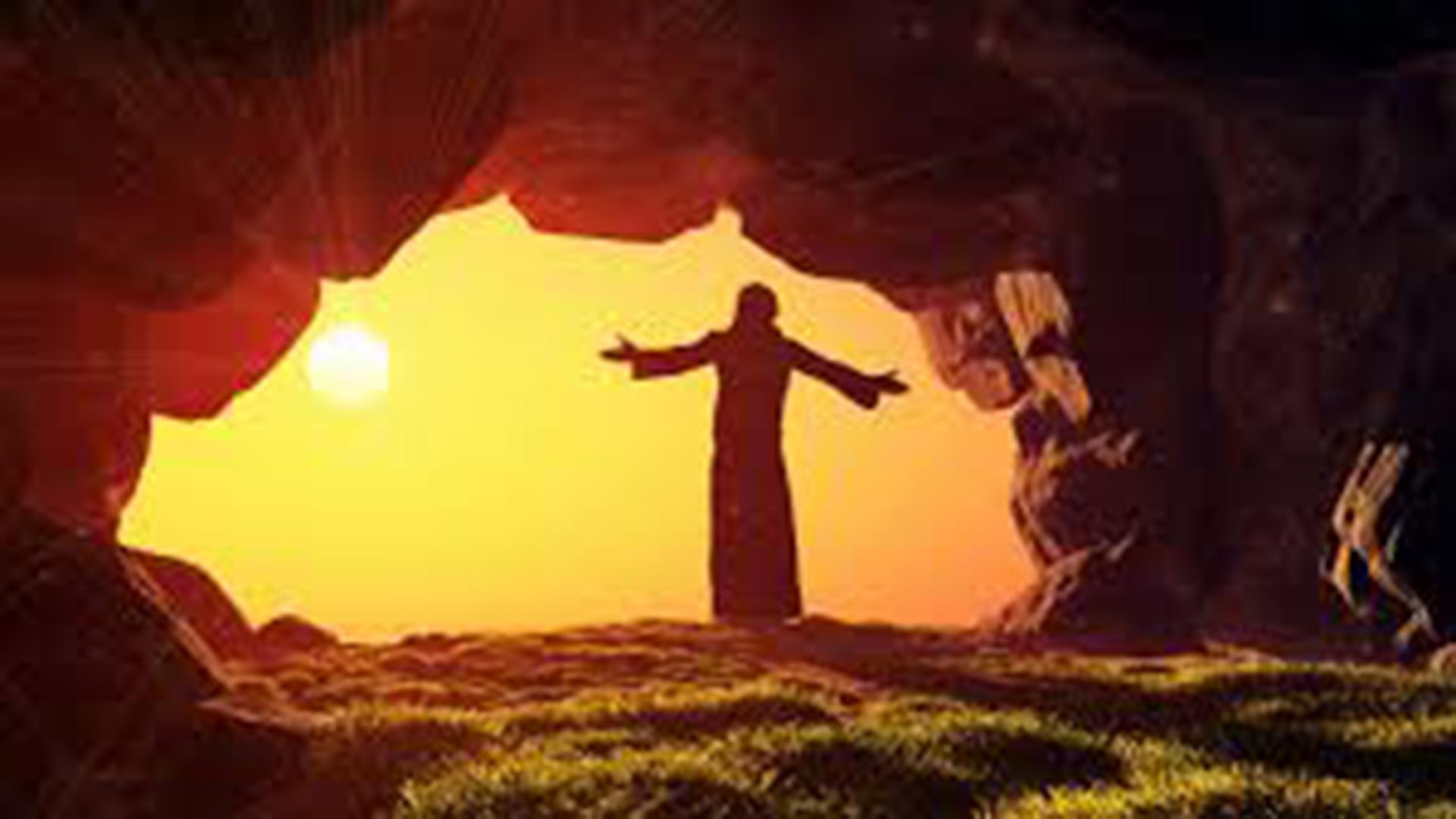The fragrance of our greatest possession
LENT 2020 – Day 41
Readings: Is 42: 1-7; Ps 26: 1.2.3.13-14; Jn 12: 1-11
The first reading is taken from the first of the four ‘servant songs’ or ‘Songs of the Suffering Servant’. It is not easy to identify the figure: is it the prophet himself, or historical Israel, or the ideal Israel? From the New Testament we know it is Jesus Christ. Its first verse is reminiscent of the voice of the Father at the Baptism of Jesus and the Transfiguration on Mount Tabor. The seventh verse takes us to the Gospel passage in Luke, chapter 4: 18. In this Jesus says that the Father has sent Him to proclaim liberty to captives, sight to the blind, and to let the oppressed go free.
Only a psalm can cap all those wonders, a psalm that is at once a song of praise and thanksgiving: “The Lord is my light and my help… the Lord is the stronghold of my life.” There is therefore nothing to fear; only in Him we should hope. And we continue to see wonders in the countdown to the Lord’s appointed hour on earth. They witness to the Lord’s goodness throughout the week.
The day following the spectacle that was Palm Sunday in Jerusalem, Our Lord stayed in Bethany. He is said to have spent the night at the home of Lazarus. The family probably hosted Him and His disciples through the week. A great multitude of Jews visited Him there, also eager to know the man whom Jesus had raised from the dead.
Those were indeed live-giving encounters. Another happened when Lazarus’ sister Mary proved herself an exceptional hostess to a divine guest. While her sister Martha took care of the daily chores, Mary fell at the feet of Jesus. She took a pound of costly ointment of pure nard and anointed His feet, which she then wiped with her hair.
Did she exceed her role as hostess? Well, nothing is too much for the Lord. She did something that no Jewish woman would dare do: she loosed her hair before Her Lord, thus expressing love and dedication. An eye-opener to all of us who fear to be different, especially when it comes to Godly things…. Aren’t we worried about what others will say and think of us?
But look who took objection to Mary’s magnanimity: none other than Judas Iscariot. The miserable soul that was to sell Our Lord wanted to first sell the ointment, ostensibly to gather money for the poor! Well, the evangelist is very clear: “This he [Judas] said, not that he cared for the poor but because he was a thief, and as he had the money box he used to take what was put into it.” The fact that Jesus despite knowing his base instincts accepted him as a disciple goes to show His concern for the well-being of his soul than for that of the common purse.
Fact is, “he who is faithful in a very little is faithful also in much; and he who is dishonest in a very little is dishonest also in much.” (Lk 16: 10) This fits Judas Iscariot like a glove. And that’s why Jesus soon hints at His death, in which Judas would soon have a dishonourably decisive role to play. “Let her alone,” says He, “let her keep it for the day of my burial.” And He adds: “The poor you will always have with you, but you do not always have me.” Yes, very often the poor are only a ruse; it’s usually ourselves that we are concerned about.
Sometimes don’t we seem greatly concerned about our little possessions and little concerned about our greatest possession in Heaven? Don’t we fall at the feet of our earthly masters but are only too proud to pray to the Lord? Whereas we set our eyes on the temporal, we let the eternal surprise us only at the time our death! Instead, like Mary of Bethany, let's set our hearts not on saving the ointment; with love and gratitude, let's spend everything on the Lord and save our soul.
Our Lord's saga of pain and suffering begins
LENT 2020 – Day 40
Readings: Is 50: 4-7; Ps 21: 8-9, 17, 18a, 19-20, 23-24; Phil 2: 6-11; Mt 26: 14-27, 66
The first two readings are a prologue to our Lord’s saga of pain and suffering described in the Gospel passage. Eight hundred years before Christ, prophet Isaiah anticipated the happenings on Calvary; and a millennium before Him, His ancestor King David wrote the haunting cry that the Christ crucified would utter: “My God, my God, why hast Thou forsaken me?” St Paul highlights the fact that the Son of God speaks here as “a servant, born in the likeness of men.” He underscores the humility and love with which our Lord looked at His earthly mission.
Today is commonly known as “Palm Sunday”. The evangelists have passages fit to commemorate this Sunday. Yet, the overarching theme of our Lord’s Passion takes precedence on this day, alternatively called “Passion Sunday”.
St Matthew portrays more than the story of a single day; he gives an overview of the first six days of the Holy Week. Accordingly, the passage comprises the entry of Jesus into Jerusalem on Sunday; His Passion on Thursday and finally His Death on that fateful Friday. However, in real time, Jesus’ last week on earth was packed with many other events as well. All together they precipitated the final meltdown, which soon became a watershed in world history.
With St Matthew as our guide
Let’s walk with St Matthew to see the places that Jesus visited, and why. Let’s also look at the personages that Jesus encountered on the way. They make up an eloquent portrait gallery in which you and I are sure to meet our human types.
When Jesus entered Jerusalem, He met an ecstatic lot. They spread garments and tree branches on the road, and shouted “Hosanna to the Son of David!” The city was stirred with the visit of “the prophet Jesus from Nazareth of Galilee”. Was this for real? Had Jerusalem accepted Him as their long-awaited Messiah? Well, this sudden switch of sentiments, this picture of innocence and goodness, seemed too good to be true. Thanks to human chemistry, an equal and opposite reaction gets underway in the minds and hearts of others following Jesus’ moves.
If the cheering multitude was naïve in its enthusiasm, so were Jesus’ disciples in their lack of fervour. On Thursday, they simply followed His instructions and arranged the Upper Room to hold their supper. Perhaps to them it was just another yearly feast. Did they understand what Jesus meant by saying that He would meet them again only “in my Father’s kingdom”? Ironically, only Judas Iscariot perhaps did, for he’d already conspired to sell his Lord for thirty pieces of silver.
That Wednesday night Jesus went out to the Mount of Olives to pray. He knew that His time was at hand. And knowing His sheep, too, He foretold that striking the shepherd would scatter them. To them it meant very little. Humans like us, lost in their own preoccupations, Peter, James and John fell asleep at three crucial moments. Curiously, here we see the human facet of Jesus too. Left to fend for Himself, he cried to His Father to let the cup pass if possible.
However, the human side of Jesus was soon superimposed with His superhuman dignity. When the kiss of betrayal brought in the hour, Jesus addressed Judas charitably as “friend”. And when someone cut off the ear of a soldier who had come to arrest Him, Jesus healed him instantly. What might the soldier have felt at that moment? What did he do thereafter: convert or continue his evil doing? We do not know. What we know, meanwhile, is that the disciples, the greatest beneficiaries of the magnanimous Jesus, took to their heels. What would we have done? And what do we do in the circumstances of our life today?
Next we meet old Caiaphas, yet another picture of human viciousness. He entertained a string of false testimonies. Then came the tipping point. Two witnesses reported that Jesus had declared that He could destroy the temple and rebuild it in three days. It no doubt crossed Caiaphas mind that Jesus was the Messiah but he didn't hail Him. Instead, he turned the tables on Him, crying “Blasphemy”, for which death was the punishment.
Jesus was next in the presence of Pilate, the governor. Here was a typical political figure playing to the gallery. He washed his hands and said, “I am innocent of this righteous man’s blood.” Why did he leave it to the populace to decide when he should have called a spade a spade? These are the undecided and/or the unconcerned who do everything only to save their skin…
At the praetorium, the stage was set for the final tragic act. Here we meet mockers. They stripped our Lord, and in disdain hung a scarlet robe over his body and a crown of thorns on his head. For a change, a man called Simon met Jesus as He wended his way to Calvary. Although they ordered him to help Jesus carry the Cross, he most likely did it with a measure of sympathy for the suffering Lord. Can we, like that Cyrenian, offer up our little sufferings as a humble participation in the carrying of the Cross?
At Calvary the ‘good thief’ said a good word to the dying Lord; he instantly merited Paradise. This goes to show that it’s never too late to convert. However, it’s better to be safe rather than sorry; we shouldn’t test God, as did Judas Iscariot, who stupidly lost his life in a shameful death.
After Jesus had died on the Cross, an old disciple, Joseph of Arimathea took charge of His sacred body. He wrapped the body in a clean linen shroud and laid it in his own new tomb. Like him, we too can help out, by rendering our services to the Bride of Christ. After all, the Church, which our Lord rebuilt on the third day, is the best repository of his memory. The Church also holds His three best gifts for humankind: first, the Holy Mass, held there every day as an unbloody enactment of the Holy Sacrifice on Calvary; second, the Priesthood, which He instituted as a sacrament of the New Covenant; and third, the commandment of love, a supreme example of how Jesus perfected the old law.
Our Lord Jesus Christ thus left us an invaluable heritage whereby we can become worthy candidates for eternal salvation. We will thereby vindicate His coming to the world.
When man was wolf to God
LENT 2020 - Day 39
Readings: Ezek 37: 21-28; Ps Jer 31: 10, 11-12ab, 13; Jn 11: 45-57
Why does the Lord God say "I will make them one nation"? Israel started off as one nation comprising twelve tribes descending from Jacob (whom God renamed Israel). Later, when the people desired a king like the nations around them, God chose Saul as the first king of Israel. However, as a result of Saul's sinful life his family lost the right to reign. Then God chose David to succeed him but only Judah accepted the choice; the other tribes of Israel followed Saul’s son Ishbosheth. A war ensued.
David, the stronger of the two, worked hard to reunite the tribes. At long last, they welcomed him as king of “all Israel and Judah”. His son Solomon followed suit, until a day dawned when he began disobeying God. When his son Rehoboam failed to keep the kingdom united, a new split ensued. God chose Jeroboam, a servant of Solomon, to head the northern kingdom. Eventually, this kingdom fell to the Assyrians the the other to the Babylonians.
This is the time when the prophet Ezekiel lived. Seeing that His people had gone astray, God could well have withdrawn and pronounced national destruction. But He was faithful to His covenant and loved His people. So He made known a new blueprint for Israel: it would be a single country under a revived Davidic dynasty, a united people, safe under the protective umbrella of the Lord God. The only condition was that the people "shall not defile themselves any more with their idols and their detestable things and with any of their transgressions." Cleansed of their defilement, they would be a new people.
We know that before God sent Jesus to the world, He had brought back the captives from Babylon but soon thereafter the country under the heavy hand of the Roman administration. Why God allowed this is a mystery. Did the sins of certain people lead to this fate, or was it God waiting to unfold the grand history of our redemption? This role the Father had assigned to Jesus. But, alas, His countrymen twisted His intentions and misinterpreted His works.
The astounding miracle of raising Lazarus from the dead is a case in point. Soon after Jesus had worked that wonder, many of the witnesses reported it to the Pharisees. So the chief priests and the Pharisees gathered the council. They deliberated that if the people began to believe in Him, the Romans would come and destroy both the holy place and their nation. So they decided to put Him to death.
Very significantly, the chief priest Caiaphas proposed that Jesus should die "not for the nation only but to gather into one the children of God who are scattered abroad." Caiaphas thus unwittingly prophesied the investiture of Jesus as the High Priest of the New Alliance, and became the last of the high priests of the Old Covenant. No doubt, great was the price that Jesus paid: he sealed it with His own blood.
This is the beginning of the end of Jesus' life on earth. He no longer went about openly among the Jews but into the wilderness, to a town called Ephraim, where he stayed with his disciples. Since the Passover was at hand, many wondered if Jesus too would go to Jerusalem for the feast. He did go... and, lo and behold, he had a reception fit for a king. Indeed a dramatic turn of events. But the question is: will He be crowned? Or will He be king just for a day?
O flickering human mind! O false promise from glib cheerleaders! It is easier to believe that these cheers will soon turn to jeers. And so it was. The chief priests and the Pharisees had already given orders that any one knew where Jesus was should let them know, so that they might arrest Him.... Homo homini lupus? Not just. Man was indeed wolf to God.
As 21st century apostles, we too have to walk the talk
LENT 2020 - Day 38
Readings: Jer 20: 10-13; Ps 17: 2-4, 5-6, 7; Jn 10: 31-42
It's unbelievable how a prophet too has to undergo trials and tribulations like we do. Jeremiah describes his own so dramatically that some have called him "the weeping prophet". God had called upon him to prophesy and he did respond with a great sense of commitment. He spoke loud and clear of Israel's unfaithfulness to the laws of the covenant, as a result of which the kingdom would face famine; invaders would plunder Jerusalem and exile the people to a foreign land.
The text of the first reading is the last of Jeremiah's so-called confessions. It is in this one that he best translates the drama of his prophetic ministry. It is even as though Jeremiah suffers from a persecution complex; his accusations sound like the ramblings of a paranoid. But soon there is an overflow of ardour for God - "the Lord is with me as a dread warrior"- and his fears vanish into thin air. Truly, if God be with us who can be against us?
The sufferings of the Son of God weren't less agonizing. The Jews subjected our Lord to physical violence and verbal abuse. Whenever Jesus quoted the Scripture to assert His identity, some seemed ignorant or apathetic to His discourse. Of course, those in the know, like the rabbis and other learned men, deflected His arguments. So Jesus now expected them to judge Him at least by His good works. The populace didn't formally deny these but meanwhile charged Him with blasphemy, for which the Mosaic law prescribed death.
In a cutting rejoinder, Jesus quotes Psalm 82, in which God upbraids some judges for their unfair judgements, saying, "You are gods, sons of the Most High, all of you". Jesus' point is that if this psalm calls them gods and sons of God, why won't God also call Him so whom He sanctified and sent into the world? But then, who can compel others to believe? Jesus revealed that He was God, but though they had ears they didn't listen to the revelation of the mystery of the Incarnate God.
That wasn't all. Since the testimony of Scripture didn't work out, Jesus returned to the argument of good works: "Though you do not believe me, believe the works." He knew that this would eventually take them to the Father in whose name Jesus accomplished those works. Besides, it is said that against facts there are no arguments. But still to no avail. The Jews stupidly rejected both His words (the Scriptures) and His works (prophecies and miracles), thus proving beyond doubt that they had closed minds.
Jesus worked yet another wonder. Although they'd sought to arrest Him, He escaped from their hands. And what's more, He did not stop preaching. There were others who needed Him, others ready to accept Him: those whom John the Baptist had prepared to accept Jesus were now waiting for Him across the Jordan. They remembered with nostalgia the truths of the faith that their catechist had taught them. They realised how right he was about his cousin Jesus Christ, and many believed in Him there and then.
So what is the take-away for us twenty-first century apostles? One, that a seed that is sown will one day bear fruit. The apostolate of presence is a great reality: if we show our readiness and do our best, God does the rest. Second, we should not feel discouraged or tire of doing our duty, in word or deed. Third, deeds are more eloquent than words. Or, according to a much-quoted adage attributed to the Italian saint Francis of Assisi: "Preach the Gospel always, and if necessary, use words." Well, se non è vero, è ben trovato! The long and short of it is that we have to walk the talk.
How do we know that Jesus is the Messiah?
LENT 2020 – Day 37
Readings: Gen 17: 3-9; Ps 104: 4-5, 6-7, 8-9; Jn 8: 51-59
The Jews of Jesus’ time swore by Abraham, from whom came the Chosen Race. However, they followed him more in letter than in spirit. When Abram became Abraham as part of the covenant that God had renewed with him, the Almighty promised to make him the father of a multitude of nations. He also expressed His desire to establish “an everlasting covenant” with Abraham’s descendants and to continue as their God. Finally, God promised them all the land of Canaan “for an everlasting possession”.
Understandably, change of name was a testimony to God’s promise and the patriarch’s new mission. But what are those “nations”? We know that Israel is the only nation that has descended from Abraham; so we may interpret “nations” here as the children that Israel would have produced spiritually had they followed God’s command in letter and spirit.
It’s a pity that, by rejecting the Messiah, Israel let go the great spiritual opportunity they had to be the Chosen Race. Finally it was Jesus who announced the Good News directly to the peoples of the world and became the Light of the Nations. By that rejection they unwittingly relinquished the land of their sojourning, “all the land of Canaan, for an everlasting possession”. Some say Canaan took the name of the grandson of Noah, a pre-Israelite land whose people had moved away from the Lord and whom He therefore moved into captivity. Thus, those who had foregone their spiritual duties forfeited the temporal blessings.
Jesus’ contemporaries in Israel were stuck in a rut. They took exception to our Lord’s statement that anyone who keeps His word “will never see death.” Jesus was talking about death by sin, which takes us to eternal damnation. Wasn’t it disturbing that quite a slanging match followed? The fact is that the people couldn’t understand the meaning and significance of what Jesus was saying to them. On the other hand, to Jesus, His identity was at the core of His message. Those who didn’t understand where He came from would not understand who He was and the purpose of His coming. No wonder they saw in Him a demon; they couldn’t figure out how He could be greater than Abraham!
How would you and I have reacted had we heard Jesus speak in that manner? It would depend on our world-view. We would have reacted positively, if we had known the true God and walked in His ways. Jesus fit the old Scriptural descriptions of the Messiah that the country was waiting for.... On the other hand, the rabbis and others who knew this well considered Him a thorn in their side. Many others thought the Messiah would be a political heavyweight who would free them from the Roman domination. Yet others fell into the temptation of judging based on externals. It was wrong on their part to say Jesus wasn’t yet fifty to “know” Abraham.... Before the patriarch of the Jewish people was, Jesus Is!
Can you and I now be sure that Jesus is indeed the Messiah? We surely can, for as the scientist, inventor and theologian Blaise Pascal said, “We know the truth not only by the reason, but by the heart.” Jesus brings us a unique, well articulated life-giving message. We can also judge the tree by its fruits - the many miracles of Jesus, especially the raising of the dead and His own Resurrection. Or as the Book of Proverbs recommends: “Trust in the Lord with all your heart, and do not rely on your own insight. In all your ways acknowledge Him, and He will make straight your paths.” (3: 5-6)
Forging ahead resolutely
LENT 2020 – Day 36
Readings: Dan 3: 14-20.24-25.28; Ps Dan 3, 29-30, 31, 32, 33, 34; Jn 8: 31-42
The first reading is as interesting as it is chilling. King Nebuchadnezzar of Babylon was a megalomaniac king who had erected a statue of gold. Prophet Daniel’s three companions Shadrach, Meshach and Abednego, who administered the province on his behalf, did not turn up at the official inauguration, as they were expected to. The monarch felt offended but gave them a fresh chance to show their respect, an offer that the trio rebuffed. They were ready to be thrown into the furnace, as per the king’s threat, but not bow to a cult image. Although they didn't plead with Yahweh to save them, they knew that He would. Or even if He didn’t, they would accept their fate in total resignation.
This is an apocryphal story whose sole purpose is to illustrate how God is all-powerful and rewards those who trust in Him. Not only did the trio escape totally unhurt, there was a fourth person keeping them company in the furnace. Nebuchadnezzar was convinced that it was an angel from above. Now in awe of Yahweh, he permitted the practice of the Jewish religion in his kingdom.
Not all Jews in Babylon, however, were like Shadrach, Meshach and Abednego. Many did worship false gods; they were polytheistic like the king himself. No doubt, back home, in Jesus’ time, the Jews did worship one God, according to the teaching of their first patriarch Abraham. They even made it a point to tell Jesus so. But for His part, the Messiah was pointing to their slavery to sin, and made a promise to deliver them from that scourge.
Well, if the people truly believed in Him, Jesus expected them to show their total allegiance. He reasoned as follows: “If the Son makes you free, you will be free indeed. I know that you are descendants of Abraham; yet you seek to kill me, because my word finds no place in you.” Jesus argued that killing him would mean going against Abraham, who always heard the Father and did what He commanded. In turn, the Jews insisted that they were not born of fornication (prostitution, that is, unfaithfulness to God), and that they had only one Father, that is, God.
The Jews, mired in their traditional way of thinking, were obstinate. They could not accept the fact that Jesus could speak about the Father in intimate terms. Hence they took Him to be an impostor, a man possessed, who spoke of not dying – when even Abraham had eventually died.... But that was how Jesus spoke the full truth, and nothing but the truth. He wouldn’t speak just what the people wanted to hear....
That puts a great onus on us. Let's reflect on whether our word is truly Yes, yes, or No, no. Or are wishy-washy and ineffectual? If the Lord finds us lukewarm or halfhearted, He will spit us out of His mouth. Hence He invites us to show enthusiasm, dynamism, and deep commitment to Him and His Church. Come then, let’s go forward together with our united resolve and strength.
We are on a pilgrim journey
LENT 2020 – Day 35
Readings: Num 21: 4-9; Ps 101: 2-3, 16-18, 19-21; Jn 8: 21-30
In the forty-year journey to the Promised Land, the Israelites remained in the wilderness longer than expected. They sometimes went round in circles. For example, when the people of Edom (bordering ancient Israel, now south-west Jordan) refused them passage, they took a route round the Moabite mountain. Since the place offered very little food and water, God gave them manna which they soon dubbed “worthless food”. God was indignant, and mortal reptile bites in that serpent-infested terrain were the punishment.
Interestingly, when Moses sought forgiveness on the behalf of his people, God commanded him to devise a bronze serpent. So what was God’s rationale? Wasn't this creature always known to be accursed above all others? Was He recommending a cult image? Obviously, the replica was harmless and meant to do good, just as Jesus Christ Himself, holy and harmless, would bear the weight of sin and save humankind. The serpent came to symbolise the Cross, and those of us who look upon the Crucified One acknowledge our sins and are saved (Jn 3: 14-17).
That’s precisely what today’s Gospel reading says: “When you have lifted up the Son of man, then you will know that I am He.” That's how Jesus went all out to make known His identity, using His Father’s typical self-introduction to Moses in the encounter of the burning bush: “I am who I am”. He also called Himself the Bread of Life; the Light of the World; the Door; the Good Shepherd; the Resurrection and the Life; the Way, the Truth and the Life; and the Vine – and He is who He is! It is as though a last effort to win the people over to His side before His death, which was imminent.
It is therefore imperative that we know our God. He never ceases to remind His people that He has created us to know Him, to love Him, to serve Him, and to be happy with Him for ever. Well, if we internalise all of this, our day-to-day suffering will cease to trouble us; worldliness will hardly attract us; and our “daily bread” will suffice and make us happy.... Aren’t we sometimes impatient like the Israelites on their way to the Promised Land? Don’t we seek quick-fix solutions to problems? Let not temptations assail us. We are on a pilgrim journey on earth; our real treasure lies in Heaven.
We live in glass houses
LENT 2020 – Day 34
Readings: Dan 13: 1-9, 15-17, 19-30, 33-62; Ps 22, 1-3a, 3b-4, 5-6; Jn 8, 1-11
Today’s first reading is one of the longest in the lectionary, and its tenor one-off. The amorous story is seemingly at variance with the mood of the Holy Week. It reads like a sensational story taken straight from the front pages of a newspaper or a racy novella. Except for the presence of a moral, for sure.
The reading talks of two men whom beauty has deceived and lust perverted the heart. As if that were not enough, the duo comprised elders of society who sinned by pronouncing “unjust judgements, condemning the innocent and letting the guilty go free.”
Prophet Daniel jumps into the arena to call their bluff. The law permitted this even if the accused were already on the way to their death. The two perverts were going to bear false witness, condemning a daughter of Israel without examining her and learning the facts, as the law prescribed. Daniel told them in no uncertain terms that the angel of God was waiting with his sword to saw them in two. Then all the assembly shouted loudly and blessed God, for they saw that God truly saves those who hope in Him. And, instead of Susanna, the two met their death.
Why this story? It belongs to the so-called Daniel cycle at Qumran and aims to contrast virtue and iniquity. It has a striking parallel in the Gospel story that shows Jesus perfecting the ancient Jewish law that overlooked the husband’s infidelity to his marriage vows.
Jesus cuts to the chase when the scribes and the Pharisees brought a woman caught in adultery. They demanded to know His opinion on the punishment she deserved as per the law of Moses. They were obviously laying a trap for Jesus. This would add to the string of accusations leading to His death. If he forgave her, He would be accused of going against the law. On the other hand, if He condemned her, they would accuse him of lack of mercy. They would even say that he had appropriated power that belonged to the Roman authority.
Hence, Jesus simply said: “Let him who is without sin among you be the first to throw a stone at her.” And they would have done so gladly and shamelessly. Meanwhile, Jesus began to write names of the male accusers guilty of the same crime. Slowly, they went away, one by one, beginning with the eldest. Then Jesus turned to the woman, and said, “Go, and do not sin again.”
Jesus did not close His eyes to the woman's sin. He commanded her not to sin again. He cornered the men, convinced that they should not go scot-free by virtue of their gender. The law of God applies equally to all. But alas, human nature is such that very often those in authority, the elders and the so-called wise, pervert and corrupt the minds of the unwary. They bear false witness – something so common even in legislatures and courts today – and have no qualms about meting out the severest punishment to the innocent. After all, wasn’t Jesus Himself the worst victim ever of most monstrous faults in a purported justice system?
To victims of atrocities the Psalm addresses a comforting answer: “If I should walk in the valley of darkness no evil would I fear, for you are there.” It is not that we should take things lying down. We have to be firm and to act, convinced meanwhile that “the Lord is my Shepherd.” He is always there. He always makes His presence felt at the most unexpected moments.
Let, therefore, the prayer on our lips always be, “Your words, Lord, are spirit and life, You have the words of eternal life.” (Jn 6: 63)
See what God alone can do...
LENT 2020 – Day 33
FIFTH SUNDAY OF LENT
Readings: Ez 37: 12-14;Ps 129, 1-2, 3-4, 5-6, 7-8; Rom 8, 8-11; Jn 11, 1-45
Ezekiel is yet another prophet that points to the final purpose of life. He was the spiritual guide of his fellowmen in Babylon. Today’s reading from his Book is only a small part of his vision of the dry bones belonging to the Israelites in exile. God promised that He would bring them to life and back to their land. Here He wished to build a new community of believers in the true God. Ezekiel is thus a prophet of the exiles, whom he gave hope.
What do the dry bones restored to life represent? The image points to the restoration of the people of Israel and to the final resurrection. Jesus Himself gives us a preview of this, “so that we may believe” in the power of God…. When He promised to raise Lazarus, sisters Martha and Mary thought it was the “resurrection at the last day” that Jesus was referring to. After declaring “I am the resurrection and the life…” Jesus actually raises Lazarus who had died four days earlier. For sure, Lazarus died one day; meanwhile Jesus had made an important point: He gives us the life of the spirit and guides us to the final resurrection.
Everyone present there saw what the “glory of God” truly meant but did they all believe in Him? No. In fact, they killed Him… He died, yes, but rose again, victorious against death. This life-filled message St Paul reiterates when he says, “If the Spirit of Him who raised Jesus from the dead dwells in you, He who raised Christ Jesus from the dead will give life to your mortal bodies…”
The readings of today will be less overwhelming when applied to our daily life. As believers, we must die to our old selves and rise again. By putting to death our evil deeds, we get to focus on the glorious promises of God. The sacrament of Confession gives us the grace to realise that our present life is not everything and that in the death of the body we don’t lose everything. There is the eternal life of the spirit – the final purpose we were always destined for.
He pulls us back from the brink
LENT 2020 – Day 32
Readings: Jer 11: 18-20; Ps 7: 2-3, 9-10, 11-12; Jn 7: 40-52
There’s a sense of urgency in the readings of today. The second major prophet, Jeremiah, registers the first of his notable confessions. He describes his sufferings and anxieties vis-à-vis the mission he has to fulfil. The Lord lets him know the enemy traps, in the wake of his vehement discourse in the temple. And much as his countrymen misunderstand him about divine punishment that is imminent, Jeremiah expresses his hope in God.
The Gospel indicates that Our Lord’s Passion is round the corner. There is an air of suspense, particularly since there is a striking division in public opinion. The people, the officers commissioned to arrest Jesus, and even Pharisee Nicodemus side with Jesus. They declare that no man has ever spoken like Him before, and insist that he deserves a fair trial.
The rest of the authorities, however, would hear nothing of that. They accused the crowd of ignorance of the law. But it is clear that they who claimed to know the law had conveniently suppressed the fact that Jesus was indeed the Messiah. Their intention was to simply eliminate Jesus; He was a thorn in their side.
Even in our time, don’t people sideline those who speak the truth? Don’t these suffer for upholding their principles? Evil-mongers hate them because they, even if unknowingly, destroy their designs. That is how fallen human nature is; there is no escape. Nonetheless, we must speak, tactfully, which doesn’t mean feebly. Above all, we have to trust in the Lord, saying, “Lord God, I take refuge in You.” He died in order to save us; He always pulls us back from the brink.
